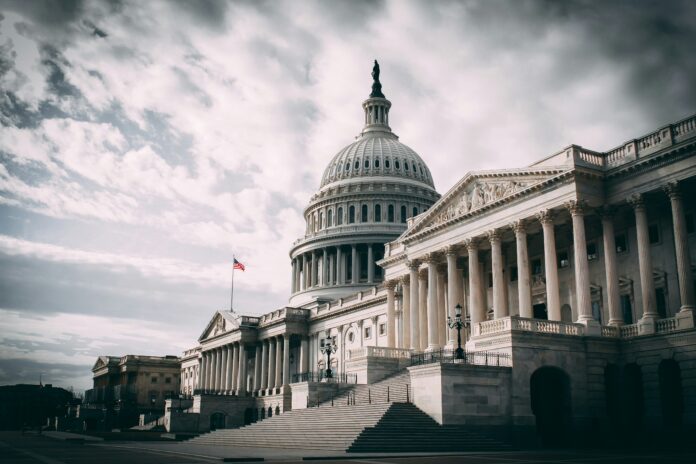Is Washington D.C. Capital of Creativity Aims for the future of Hollywood?
Washington D.C. is making bold moves to position itself as the nation’s premier entertainment hub.
With a surge in investment and cultural programming, Mayor Muriel Bowser has declared her vision to transform the city into the “Capital of Creativity.”
The launch of 202Creates Month marks a pivotal step in this effort, spotlighting local talent and laying the groundwork for what could become a thriving entertainment district in the heart of the nation’s capital.
In a city traditionally defined by politics and government, D.C.’s leaders are now betting big on arts, culture, film, music, and sports as drivers of economic growth. This strategic pivot aims to attract tourists and investors while giving residents new reasons to celebrate and engage with their city’s rich cultural landscape.
The Rise of the Creative Economy in D.C.
At the recent launch of 202Creates Month at Planet Word Museum, Mayor Muriel Bowser emphasized how vital the creative industries have become to the District’s future.
“Arts, culture, film and entertainment, and sports are such a big part of our economic growth agenda because they bring people together, they get people excited…and they generate even more pride in our city,” Bowser said.
According to city data, D.C.’s creative economy generated $2.6 billion in 2016. Today, that figure has skyrocketed to $15.9 billion, highlighting the rapid growth of industries like film, design, and live entertainment. With these numbers, Bowser’s vision of an entertainment-centric D.C. is more than just political rhetoric — it is becoming a tangible economic reality.
The mayor has also framed the creative economy as a diversification strategy to protect the city from federal workforce cuts. By shifting focus from government jobs to industries like tech, sports, and the arts, D.C. is setting itself up for long-term stability and prosperity.
202Creates is a Cultural Celebration
Since its inception in 2016, 202Creates has been at the forefront of D.C.’s creative renaissance. This annual event series, hosted by the Office of Cable Television, Film, Music and Entertainment (OCTFME), showcases the talents and industries shaping the city’s cultural identity.
This year introduced 202Creates Con, a new initiative featuring immersive experiences like fireside chats, panel discussions, and networking events. It provided a platform for local artists and entrepreneurs to connect, collaborate, and grow.
The month’s highlight will be the Mayor’s Arts Awards on September 25, honoring those who’ve made significant contributions to the District’s creative landscape.
LaToya Foster, director of OCTFME, emphasized the initiative’s broader economic role:
“202Creates is a strategic economic driver that powers our city’s identity as the creative capital and as an innovative economy.”
Competing With the Giants: D.C. vs. Atlanta
Atlanta has become synonymous with entertainment success, home to powerhouse studios like Tyler Perry Studios and filming locations for blockbuster productions such as Black Panther and Avengers: Endgame.
While acknowledging Atlanta’s achievements, Foster made clear that D.C. has its own unique strengths.
“There is only one D.C.,” Foster said.
“We are the capital of the world. We are expanding our economy, making it more diverse. This is not just a government town anymore.”
John Gibson III of the Motion Picture Association, headquartered in D.C., echoed this sentiment:
“Before there was Atlanta, there was D.C. We were the original Chocolate City.
We are also the capital of the world.”
These statements underline the city’s ambition to build a creative economy that leverages its rich history, cultural diversity, and global stature.
Incentives and Infrastructure: Attracting Film and Entertainment
One of the biggest hurdles to D.C.’s entertainment ambitions is convincing production companies to choose the District over other major hubs. Herbert Niles, associate director for OCTFME’s film division, is working to change that narrative.
The D.C. Film, Television, and Entertainment Rebate Fund is central to this effort. This program offers rebates ranging from 10% to 35% to incentivize productions to film in the city. For example:
-
Up to 35% back on qualified production expenditures.
-
Up to 10% rebate for non-resident cast and crew.
These incentives not only attract film companies but also create ripple effects for local businesses, from restaurants to dry cleaners.
Niles explained,
“You have to build those relationships. We also connect local businesses with production companies. The people who work in those companies will need to go to the cleaners, eat at restaurants.”
Increasing these incentives, Niles argues, could make D.C. a top-tier destination for entertainment companies.
The Road Ahead
With strong leadership, growing investment, and strategic planning, Washington D.C. is poised to become a national leader in the creative economy. While cities like Atlanta and New York dominate the conversation now, D.C.’s unique position as the political and cultural capital of the world gives it a powerful edge.
As Bowser put it:
“202Creates Month is a celebration of the important role artists, entrepreneurs, and innovators play in telling the story of our beautiful and creative city.”
For residents and visitors alike, this movement offers an exciting vision of D.C. as more than just the seat of government — it could soon be a premier destination for entertainment, innovation, and community.



